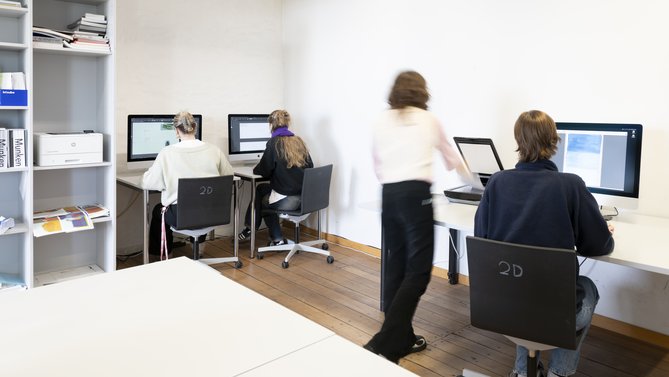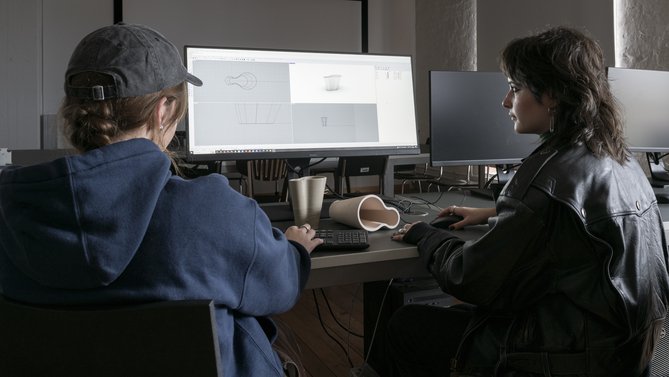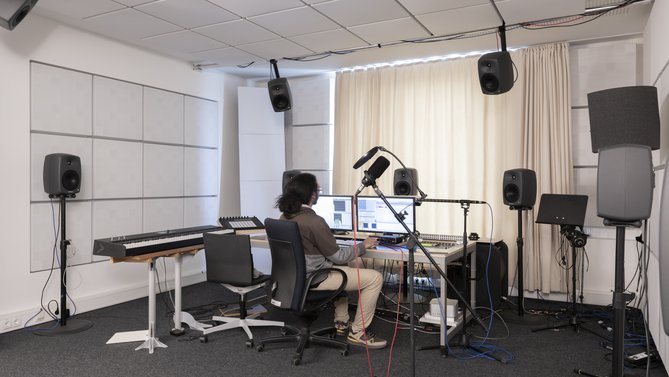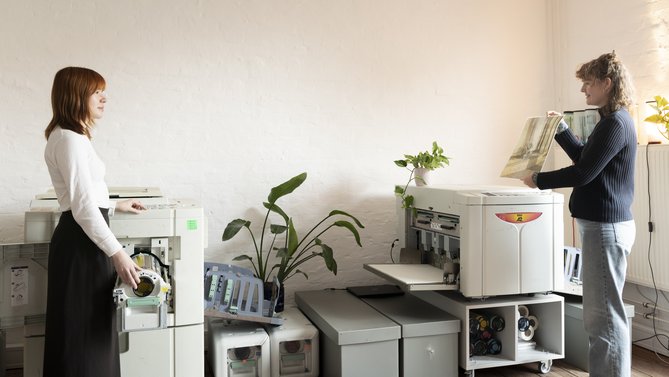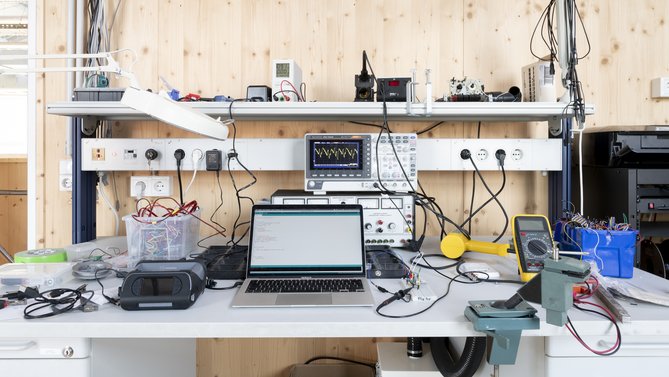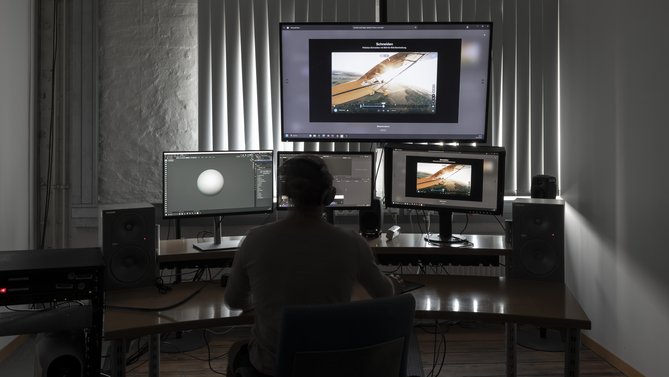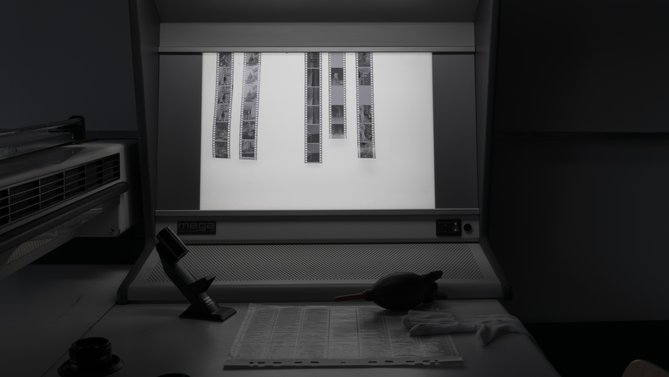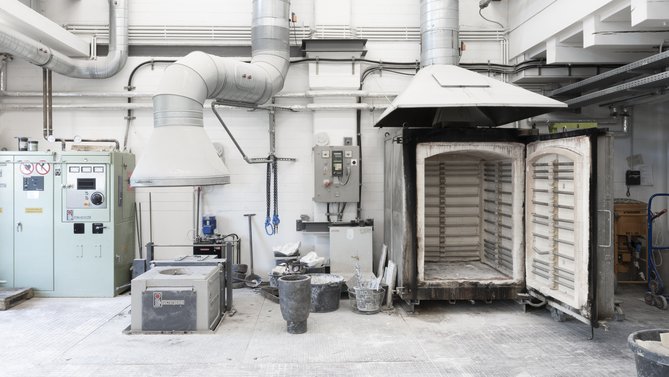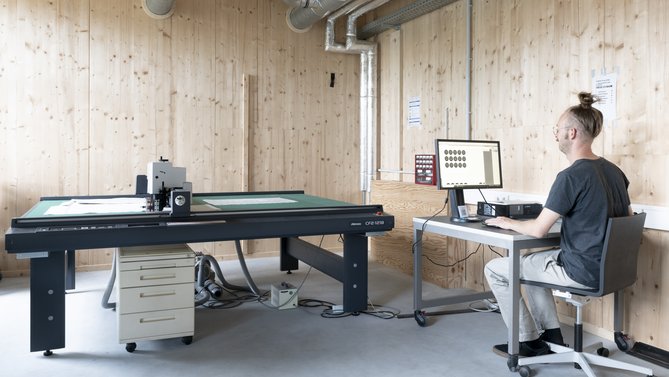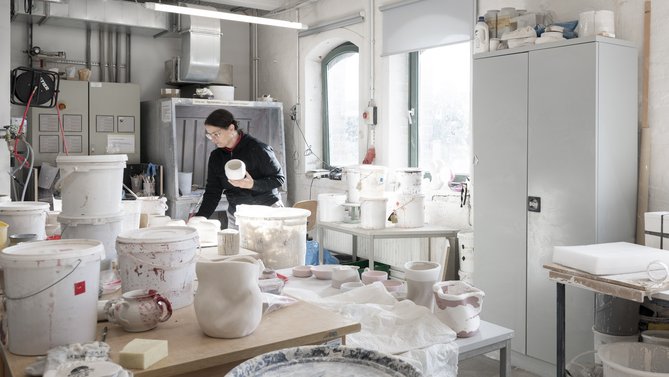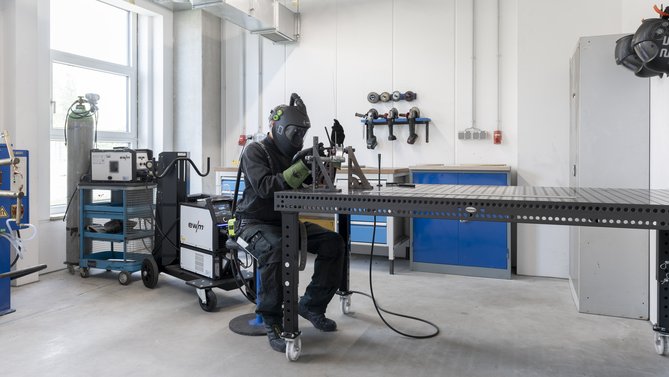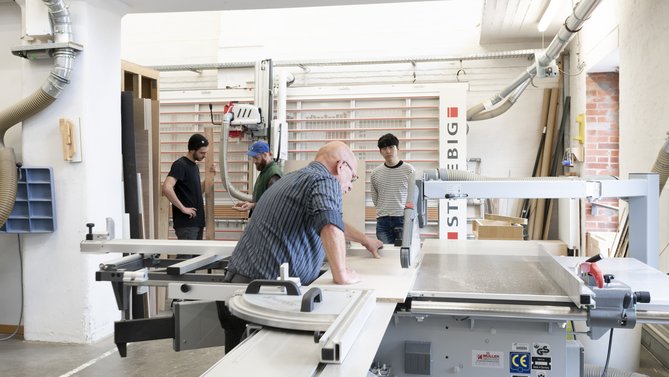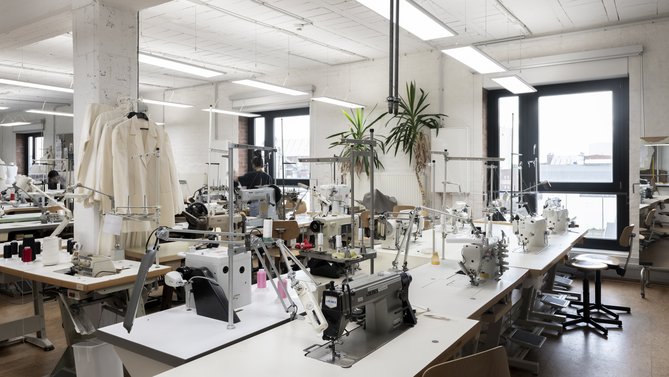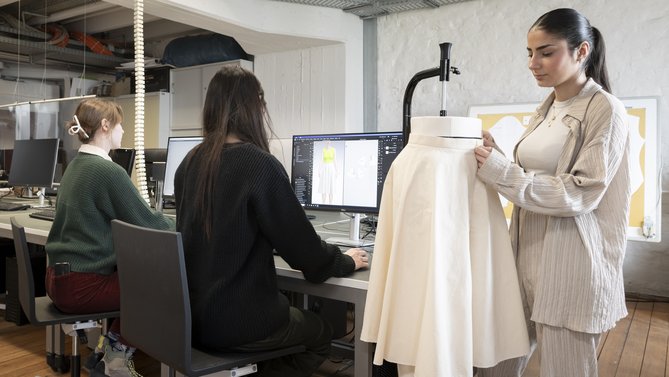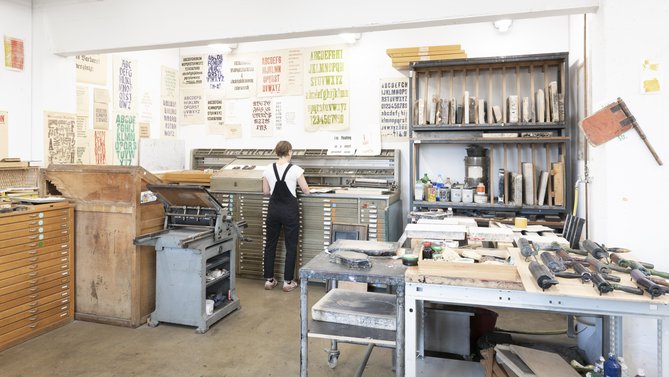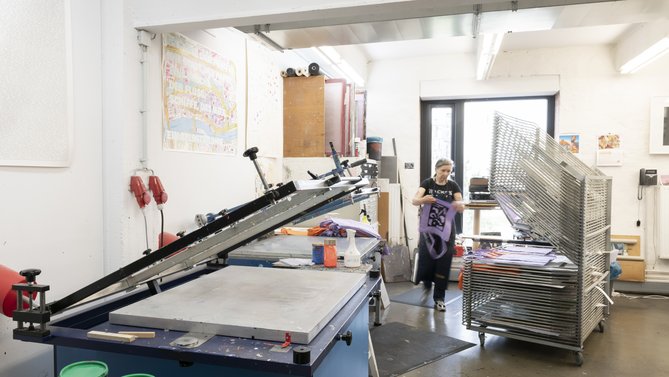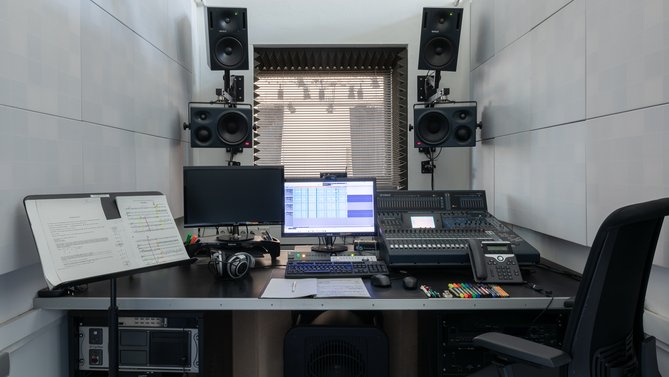Workshops and Studios
It takes workshops and studios to turn thoughts and visions into manifest reality. Workshops therefore constitute the core of Speicher XI and Speicher XI A. There are also two studios in Dechanatstraße. The workshops and studios there are equipped and run to professional standards and they are open to every teacher and student alike. Whether casting bronze, constructing models, manual printing or a sound studio: At the workshops and studios, students at the Faculty of Fine Arts and Design as well as the Music Faculty can test their artistic and design conceptions on models or objects, acquaint themselves with materials and realise their projects as artisans. The workshops and studios are foundational, everyday elements of studying at the HfK and the people managing them are important contacts for our students.
Hall 3 at Speicher XI A serves as the OpenLab, an area for free experimentation.
Workshops
The foundry and chasing workshop comprises a total of two workshops in Speicher XI: a casting workshop with a focus on art casting and negative mould production for casting bronze and aluminium alloys and a workshop for moulds and models made of silicone rubber, alginate, cold foam, plaster, wax, concrete and cast glass. In addition, the weather hall represents a free space for larger projects with the materials stone, wood, or other materials.
Speicher XI also houses a ceramics workshop with a laboratory for glazing: This workshop includes a number of different areas as well: a turning room with six pottery wheels; an area for mould making for slip casting and glass casting; the glazing laboratory; the workshop for slip casting; the means for preparing clay; there is also the kiln. In addition, the workshop maintains a 3D printer for clay and porcelain, as well as two kilns at the outside area – a fast fire kiln using wood and a gas kiln for Raku ware.
The workshop for constructing models provides machines to process wood, plastics and metals. Here, students can turn their designs into models or prototypes. For students interested in manual printing, the HfK provides even two workshops: The one for etching holds the machines and tools needed for applying a range of printing technologies. The one for silkscreen helps students to print their projects in that medium on a variety of substrates.
Speicher XI also contains a workshop for photography with a photo studio; a room for digital printing holding two large format printers; the dark room; a space with work stations for digital scanners and computers; as well as a loan desk issuing camera gear.
The workshop for film and video provides a sound studio; two spaces for animation; a video studio; as well as a room for working with 16 millimetre film and a number of work stations for video editing.
The HfK also offers workshops with professional and state-of-the-art equipment at the Design Faculty. The fashion workshop holds two large cutting tables; 15 industrial sowing machines; a number of sowing machines for special purposes such as working on elastic textiles or manufacturing shoes; as well as a number of machines for hand knitting. Patterns for these machines can be created by using punch cards or a computer program. Students can also realise their designs on a 6-thread embroidery machine working with a PE-Design 10 program. Rivets, eyelets and push buttons can be pressed into clothing, bags, shoes and other items with a drop spindle.The CAD workshop for fashion provides eleven work stations for Windows software; a digitiser; two large format colour printers; one A4 laser printer and one A3 printer and scanner, thereby facilitating work based on a range of software applications used in the textile industry.
The 2D workshop supports students at the HfK in realising their projects in graphic design, typography and prepress. Employees offer advice and guidance for individual projects. The site also provides software workshops on digital programmes and typesetting with a focus on print media. The workshop is furnished with work stations for Mac computers; colour laser- as well as large format printers; flat bed scanners; a material archive; as well as tools to process printed materials when realising projects ranging from digital designs to finished products. The 3D workshop provides a computer studio to conceive 3D models and computer based designs. Digital models can be created there, too.
The Druckpool is the first and so far only student-run workshop at the HfK. The Druckpool is a risography workshop, experimental field and meeting place all in one. Here, students can realise their own works in the Riso printing process with energetic and professional support. In addition to three different risographs, the workshop's inventory also includes a cutting plotter, a stack cutter and a coil binding machine.
The audio lab in the work shop at Digital Media is focussed on audio, processing, Pure Data, MaxMSP and Arduino. Introductions to audio editing and recording, as well as to using sensors are available on request.
The metal constructions and prototypes workshop is designed to offer students the opportunity to learn and apply a wide range of joining, cutting and forming processes, as well as common design and construction methods with steel and non-ferrous metals. Mechanical and static designs can be implemented here and functional prototypes can be built.
The InteractionLab, which houses 3D printers, CNC cutting plotters, laser cutters, 3D glasses, gadgets with sensors and all kinds of useful odds and ends, is located in the Speicher XI A. It stands between the analogue and digital worlds, between programme code and artefacts, engineering and technology.
Speicher XI A also houses the workshop for electronic experiments, where students can find technical help and advice in areas such as electrical engineering, programming micro processors and interactive installations.
Studios
There are two studios in Dechanatstraße.
In the Recording Studio, students have the opportunity to record intensively prepared pieces of music under professional conditions. Details are discussed on the basis of the musical text and possibly re-recorded until the result fulfils high artistic and technical requirements.
The recordings are then edited, mastered and made available to the students. On request, final concerts can also be recorded. Recordings of public concerts are archived.
Situated in the Atelier Neue Musik, the Studio for Electroacoustic Music of the is the central classroom for individual lessons and seminars in the field of composition and realisation of electroacoustic music. More general courses on audio technology and audio programming also take place here. Regular lessons in these subjects are supplemented by workshops and guest lectures.
Composition students create works using electroacoustic means (acousmatic music, live electronics, audiovisual projects, etc.) in the studio and can use a 3D speaker setup (9.1.4). Electroacoustic concerts and other events are prepared here, even beyond the students' work. This applies to fixed media as well as interactive projects: instrumental and vocal works with live electronics are rehearsed here.
Through its activities in the field of sound art and audiovisual composition, the studio also forms a bridge to the Faculty of Art and Design at the University of the Arts Bremen, in particular to study programmes in Fine Arts and Digital Media.
